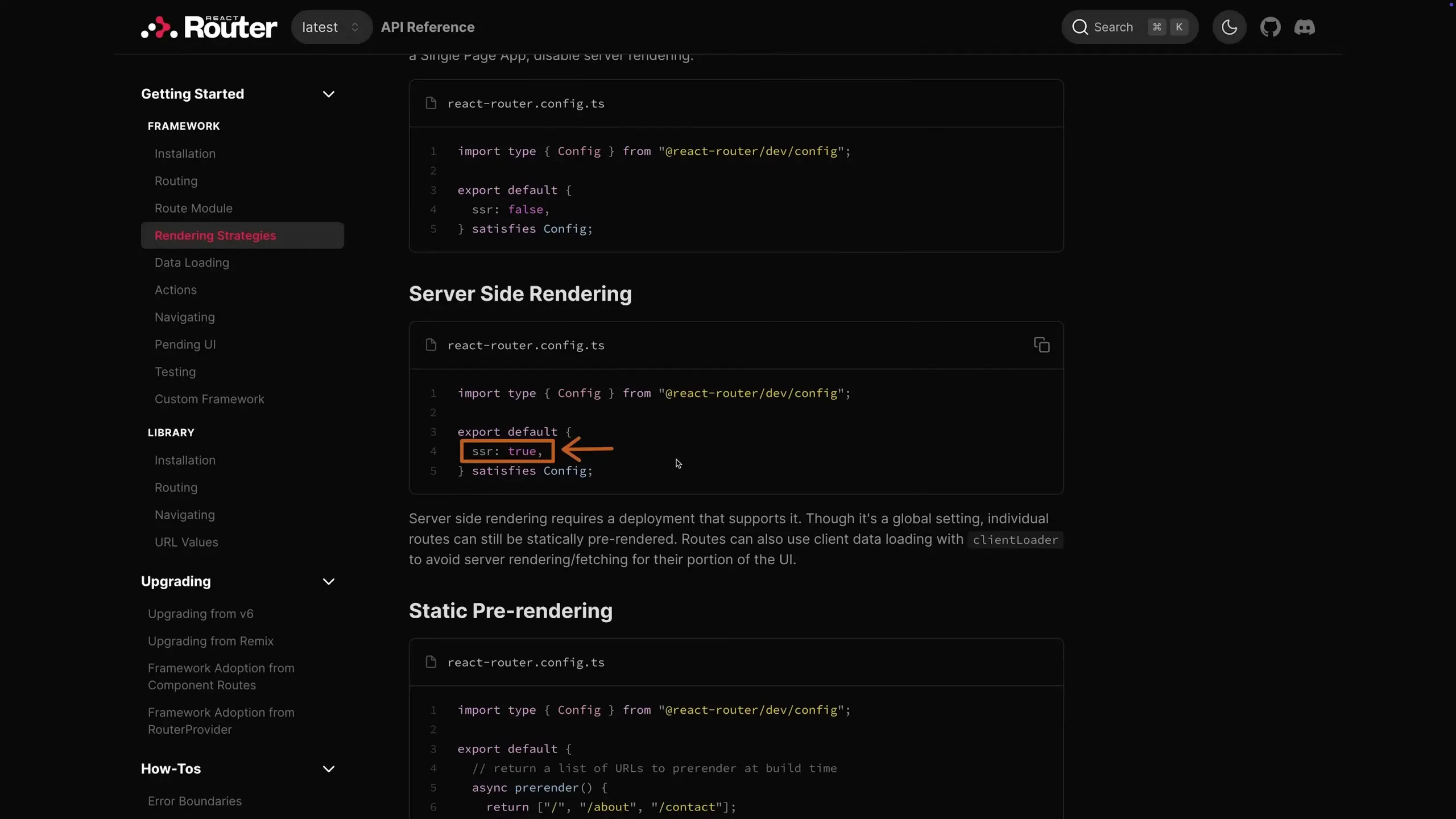
React Router has long been the most popular routing solution for React applications, and version 7 brings a significant evolution to this essential library. While this major release maintains impressive backward compatibility with version 6 code (especially 6.4+), it introduces a revolutionary approach that might change how you build React applications forever.
What's New in React Router 7?
The most groundbreaking aspect of React Router 7 is its dual functionality. For the first time ever, developers can choose whether to use React Router as a traditional routing library (as we've always done) or as a full-fledged framework that serves as an alternative to Next.js. This flexibility comes from the React Router team's work on Remix, which has now been integrated into the core React Router package.
Another notable change is package consolidation. You can now simply install 'react-router' instead of 'react-router-dom'. All APIs and functions have been consolidated into this single package, though 'react-router-dom' is still available for backward compatibility. The future direction appears to be moving toward using just the 'react-router' package.

Backward Compatibility and Non-Breaking Changes
Despite being a major version update, React Router 7 maintains strong compatibility with version 6 code. If you're using React Router 6.4 or higher, most of your code should continue to work without modification. The React Router team has been proactive about this transition, introducing "future flags" in version 6.x that allowed developers to adopt React Router 7 patterns early.
While the official upgrade guide covers many changes, there are a few non-breaking schema updates detected that aren't explicitly mentioned:
- The 'json' utility function has been removed in React Router 7. If you were using this function to construct JSON responses, you'll need to construct response objects manually.
- The 'defer' function has been simplified. You no longer need this wrapper function - you can directly send promises to your components instead of resolved data, and everything will work as before.
React Router as a Framework
The most exciting addition in React Router 7 is the ability to use it as a full-stack framework. This approach brings Remix functionality directly into React Router, allowing developers to build server-rendered React applications with optimized code splitting and other advanced features.
When using React Router as a framework, you'll need to install additional packages beyond the core 'react-router' package. The team provides templates to help you get started with this approach.

The framework approach offers several advantages:
- Server-side rendering capabilities
- Alternative route definition methods, including file-based routing
- Server-executed loader and action functions (similar to Remix)
- Dedicated client loader and client action functions for client-side data operations
The Evolution from Remix to React Router 7
To understand the significance of React Router 7, we need to look at its history. Around 2020-2021, the React Router team began developing Remix, a full-stack React framework. Remix introduced concepts like loader and action functions that were later partially incorporated into React Router 6.4.
The key difference was that in React Router 6.4, these functions ran on the client side, while in Remix they executed on the server. This distinction meant React Router remained a client-side library, while Remix enabled full-stack development.
With React Router 7, these two approaches have converged. Remix now uses React Router under the hood, and React Router can function as a framework with server-side capabilities. This consolidation allows the team to maintain a single codebase while offering developers more flexibility.

Should You Upgrade to React Router 7?
If you're using React Router 6.4 or higher, upgrading to version 7 should be relatively painless. Most of your code will continue to work, with only minor adjustments needed for the non-breaking changes mentioned earlier. The official upgrade guide provides detailed information about potential breaking changes.
The decision becomes more interesting if you're considering the framework approach. If you're looking to build a full-stack React application or want an alternative to Next.js, React Router 7's framework capabilities offer a compelling option, especially if you're already familiar with React Router's patterns and APIs.
Implementation Example: Using React Router 7 as a Library
// Install with npm or yarn
// npm install react-router
import { createBrowserRouter, RouterProvider } from 'react-router-dom';
// Or use the new package
// import { createBrowserRouter, RouterProvider } from 'react-router';
const router = createBrowserRouter([
{
path: '/',
element: <RootLayout />,
children: [
{ index: true, element: <HomePage /> },
{ path: 'products', element: <ProductsPage /> },
{
path: 'products/:id',
element: <ProductDetailPage />,
// Data loading - now you can directly return a Promise
// instead of using defer()
loader: ({ params }) => fetchProductData(params.id)
}
]
}
]);
function App() {
return <RouterProvider router={router} />;
}Conclusion
React Router 7 represents a significant evolution in the React ecosystem. By combining the traditional routing library approach with framework capabilities, it offers developers unprecedented flexibility in how they build React applications. Whether you choose to use it as a simple routing solution or leverage its full-stack capabilities, React Router 7 provides a path forward that aligns with modern web development practices.
This non-breaking update truly changes everything - not by forcing developers to rewrite their code, but by opening new possibilities for application architecture while maintaining compatibility with existing patterns. It's a smart strategic move that positions React Router as both a reliable routing solution and a contender in the increasingly competitive React framework space.
Let's Watch!
React Router 7: The Non-Breaking Update That Changes Everything
Ready to enhance your neural network?
Access our quantum knowledge cores and upgrade your programming abilities.
Initialize Training Sequence